For those experiencing back, neck, shoulder, or knee pain, our physical therapists offer advice on sleeping comfortably.
We often hear our patients who are undergoing orthopedic rehabilitation or other physical therapy services mention the trouble they have finding a sleeping position conducive to healing. At times, their favorite sleeping position begins to cause them additional pain, disturbing any chance of getting a restful snooze.
The fact is that healing and recovery occurs during sleep and your muscles require additional recovery time after illness, injury and surgery. That is why it is important to make sure we are getting adequate rest. Whether you’ve suffered a sports injury or are experiencing everyday aches and pains, here are the best sleep positions for dealing with discomfort:
Back Pain
If back pain is keeping you awake at night, there are several sleep positions that may help:
- Your side: Allow one side of your body (including your shoulder) to touch the mattress, and put a pillow between your knees. If there is a gap between your waist and the mattress, add a small pillow or a rolled up towel there to properly align your hips, pelvis, and spine.
- Your stomach: Although you may have heard that sleeping on your stomach makes back pain worse, it can be comfortable if you place a pillow under your pelvis and lower abdomen to remove some of the pressure on your back.
- Your back: Sleeping on your back may be the best option for back pain if you place a pillow beneath your knees. For added support, you can also put a small, rolled up towel under the small of your back.
If you suffer from spondylolisthesis, try sleeping on your back in a reclined position, either in a recliner chair or an adjustable bed.
Neck Pain
If you suffer from neck pain, try sleeping on your side or on your back. If you sleep on your back, choose a curved pillow that will support the natural bend of your neck and a flatter one to cushion your head – special pillows with built-in neck support are available or you can try rolling up a towel and placing it inside the pillow case at the bottom of one end. Avoid using a stiff pillow, which will keep your neck in a flexed position and result in morning pain and stiffness. If you sleep on your side, try to keep your spine aligned by using a pillow that is higher under your neck than under your head.
Shoulder Pain
If shoulder pain is the culprit, try lying on the side free of pain, bending your legs slightly. Extend your bottom arm out and then pull it in, using both arms as you hug a pillow to your chest. Adding a pillow behind your back will prevent you from turning back onto your painful shoulder. If you sleep best on your back, use a couple of pillows under the affected arm to keep it elevated off the bed, with both arms relaxed at your sides. Make sure to avoid placing the pillows directly under your shoulder where the pain is most severe.
Knee Pain
Joint pain in the knees typically worsens at night, when joints swell due to lack of movement. If you are experiencing knee pain while trying to sleep, try placing a pillow between your knees if you sleep on your side, or under your knees if you sleep on your back. A firm mattress with a foam pillow top will help evenly distribute your weight and keep your joints in alignment.
Proper Body Alignment
No matter what sleep position you choose, proper body alignment is key. To accomplish this, focus on aligning your ears, shoulders, and hips, filling in the gaps with pillows. Also remember to move your entire body at the same time when turning in bed (also known as “log rolling”), keeping your core area/stomach tight, or bring your knees in to your chest as you turn over.
Are you experiencing neck, back or shoulder pain during sleep? Visit one of our 175+ physical therapy clinics and let us help you live life pain-free. Learn more about how to see our therapists without a physician referral or schedule an appointment at a clinic nearest you.
